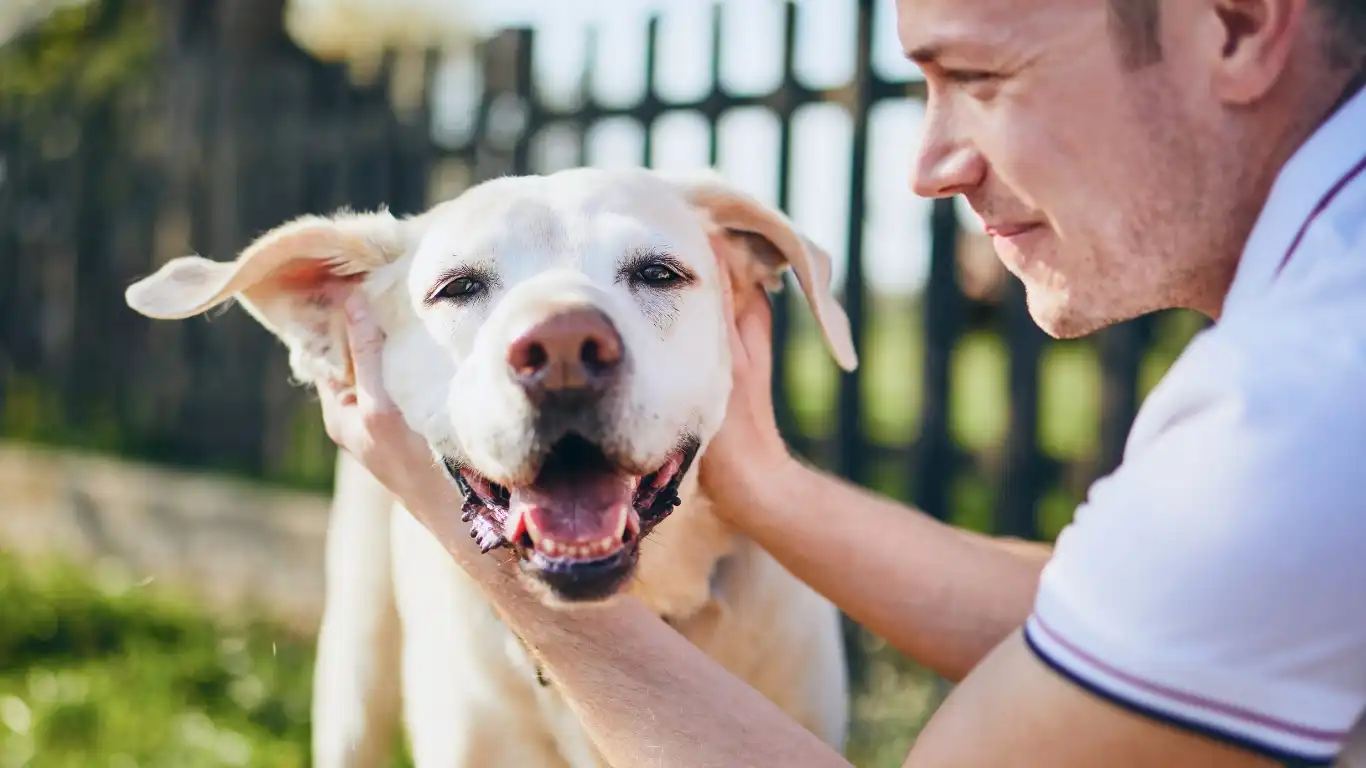Best Natural Remedies for Dog Ear Infections That Work Wonders
If you’re a pet parent, you know how distressing it can be when your dog isn’t feeling well, especially when it’s something as uncomfortable as an ear infection. Having worked as a Veterinary Technician with a focus on nutrition, I’ve seen countless dogs suffer from these pesky ear issues. But the good news is, you don’t always need a vet visit for every ear problem. There are plenty of natural remedies for dog ear infections that can be just as effective. This article is here to guide you through some of the best options that are not only safe but also easy to implement at home. Let’s dive in!
Understanding Dog Ear Infections: What You Need to Know
Before we dive into the best natural remedies for dog ear infections, it’s important to understand why they happen in the first place. Dogs’ ears are more prone to infections than humans due to their unique anatomy. Their long, floppy ears create a warm, moist environment that can be a breeding ground for bacteria and yeast, especially in dogs with a lot of fur or those who love water.
I’ve seen many dog owners struggle with ear infections that seem to come back over and over again. A lot of the time, it’s not just about getting rid of the infection—it’s about preventing it from coming back. And that’s where natural remedies can play a huge role. They can help clear up the infection and also promote long-term ear health, all while being gentle on your dog’s sensitive skin and ears.
Common Signs of Dog Ear Infections
How to Spot the Symptoms Early
It’s crucial to catch ear infections early to prevent them from getting worse. Here are some common signs that your dog might be suffering from an ear infection:
- Frequent head shaking: Dogs with ear infections often shake their heads vigorously to try to relieve the discomfort.
- Scratching at the ears: If your dog is constantly scratching or rubbing their ears, it’s a sign that something’s not right.
- Odor: A strong, unpleasant smell coming from the ears is a clear indicator of an infection.
- Redness or swelling: Check the inside of your dog’s ears. If they appear red or swollen, it’s time to take action.
- Discharge: Any thick, yellow, or brown discharge is usually a sign of an infection.
If you notice any of these symptoms, it’s important to act quickly. While natural remedies can often help, if the infection persists or worsens, don’t hesitate to contact your vet. Remember, early intervention can make a big difference in your dog’s recovery!
The Best Natural Remedies for Dog Ear Infections
Now that we’ve covered the basics of ear infections, let’s talk about the best natural remedies. These are my personal go-to options that I’ve recommended to countless pet owners who are looking for safe, effective alternatives to medications. I can tell you from experience that these remedies have worked wonders for many dogs.
1. Coconut Oil: A Natural Antibacterial
Coconut oil isn’t just a miracle product for humans—it can work wonders for your dog too. It has natural antibacterial, antifungal, and anti-inflammatory properties, making it one of the best natural remedies for dog ear infections. Applying coconut oil can help soothe irritation, reduce swelling, and fight the bacteria or yeast that cause ear infections. Plus, it’s a completely safe option when used properly.
How to Use It: Warm up a small amount of coconut oil in your hands (make sure it’s not too hot), then gently massage it into your dog’s ear canal using a cotton ball or soft cloth. Let your dog shake their head a bit, and wipe away any excess oil with a clean cloth. You can do this once or twice a day until the infection clears up.

2. Apple Cider Vinegar: A Powerful Antiseptic
Apple cider vinegar is another incredible remedy that many dog owners swear by. The acidity of apple cider vinegar can help balance the pH levels in the ear canal and fight off harmful bacteria and yeast. It’s also great for preventing future infections by keeping the ear environment healthy and clean.
How to Use It: Mix equal parts of apple cider vinegar and water (you can start with a small batch to test it out). Use a cotton ball to apply the mixture to your dog’s ear, gently wiping the inside. Be careful not to insert anything deep into the ear canal. This can be done a few times a week as a preventative measure, or daily when you’re treating an active infection.
3. Aloe Vera: A Soothing and Healing Plant
If your dog’s ears are red, swollen, or irritated, aloe vera can provide some much-needed relief. Aloe vera is well known for its soothing and healing properties. It can help reduce inflammation and provide a cooling effect, which is especially helpful if your dog is in pain. Plus, aloe vera has mild antibacterial properties, making it a good option for ear infections.
How to Use It: Use pure aloe vera gel (make sure it’s free of alcohol and additives). Apply a small amount to your dog’s ear using a cotton ball, and gently wipe the affected area. Be cautious not to overuse it, as it’s best to keep things mild and not irritate the ear further.

4. Herbal Ear Drops: Nature’s Medicine
Herbal ear drops can be an excellent natural option, especially when made from ingredients like calendula, witch hazel, or chamomile. These herbs have calming, antiseptic, and anti-inflammatory properties that can help alleviate pain, reduce swelling, and speed up the healing process.
How to Use It: Purchase a high-quality herbal ear drop solution (you can find these at pet stores or online). Follow the instructions on the bottle, but typically, you’ll apply a few drops into your dog’s ear and massage gently at the base of the ear. Be sure to wipe away any excess fluid afterward.

Preventing Future Ear Infections in Dogs
While it’s great to know how to treat a dog’s ear infection naturally, it’s even better to prevent them from happening in the first place. Over the years, I’ve learned that prevention is often easier than treatment. Dogs with chronic ear infections or those who are particularly prone to them can benefit from some simple habits that help maintain clean and healthy ears. In this section, I’ll share some tips that can go a long way in keeping your dog’s ears infection-free.
1. Regular Ear Cleaning
Regular ear cleaning is key to preventing ear infections, especially for dogs that have long, floppy ears or are prone to excessive moisture in their ears. I recommend cleaning your dog’s ears about once a week to keep the ear canal free from dirt, wax, and other debris that can lead to infections. You don’t need to go overboard, but a simple, gentle clean with a safe ear cleaner can be enough to maintain a healthy environment in the ears.
How to Clean Your Dog’s Ears: I’ve found that using a natural ear cleaner, like one made with witch hazel and aloe vera, is the gentlest and safest way to go. Avoid using Q-tips deep in the ear canal, as you can cause injury to the eardrum. Instead, apply a few drops of the ear cleaner to a cotton ball or soft cloth and gently wipe the inside of the ear flap. Make sure to wipe the outer parts of the ear too to catch any dirt or buildup.

2. Drying Your Dog’s Ears After Baths or Swimming
If your dog loves swimming or gets a regular bath, you should be extra careful about moisture getting trapped in their ears. Moisture in the ear canal can promote the growth of bacteria and yeast, which can lead to infections. After bath time or swimming, use a clean towel to dry your dog’s ears thoroughly. If you’re concerned about moisture, a few drops of rubbing alcohol in the ear can help dry things out quickly.
Quick Tip: For dogs that love water activities, investing in ear-drying solutions or even dog-specific ear wipes can be a game-changer. These products help absorb moisture and keep your dog’s ears dry after swimming or bath time. If your dog isn’t fond of ear care, this might take some practice, but most pups eventually get used to it with a little positive reinforcement.
3. Keeping Your Dog’s Ears Trimmed
Trimming the hair around your dog’s ears can also help prevent ear infections, especially for breeds with long hair or heavy ear flaps. Long hair inside the ear canal can trap moisture and create a warm, dark environment that’s perfect for yeast and bacteria to thrive. I’ve recommended this to pet parents with long-haired breeds, and the difference in ear health can be significant.
How to Trim the Hair Around Your Dog’s Ears: Use a small pair of scissors or a special ear trimmer designed for dogs. Be careful not to cut too deep inside the ear canal. It’s best to trim only the hair that is visible around the outer ear area, leaving the inner canal hair untouched unless you’re experienced. If you’re unsure, consider asking a professional groomer to handle the trimming for you.

Natural Oils and Supplements for Long-Term Ear Health
Along with your regular ear care routine, certain oils and supplements can help support long-term ear health and reduce the chances of ear infections reoccurring. Over the years, I’ve found that adding specific oils and supplements to a dog’s diet can help strengthen their immune system and balance the natural bacteria in their ears.
1. Oregano Oil: A Natural Antifungal
Oregano oil is well-known for its potent antifungal and antibacterial properties, making it a fantastic option for preventing ear infections. It can be used both topically and internally (though only under the guidance of a vet) to help support your dog’s immune system and ward off infections. I’ve recommended it to many dog owners who have seen fantastic results, especially for dogs prone to chronic yeast infections.
How to Use Oregano Oil: To apply topically, dilute oregano oil with a carrier oil like coconut oil (about one drop of oregano oil to 5 drops of coconut oil). Gently rub this mixture into the base of your dog’s ears. For internal use, consult with your vet to make sure you’re using the right dosage based on your dog’s weight.
2. Probiotics for Dogs: Strengthening the Immune System
One of the best ways to prevent ear infections in the long run is by strengthening your dog’s immune system, and probiotics can play a big part in this. Probiotics help balance the bacteria in your dog’s gut, which, in turn, can affect the overall health of their skin and ears. Dogs with a stronger immune system are less likely to develop yeast or bacterial infections.
How to Use Probiotics: You can find probiotic supplements specifically designed for dogs in most pet stores or online. I usually recommend probiotic powders that can be mixed into your dog’s food once a day. Just like with any supplement, make sure to consult with your vet before starting a new regimen, especially if your dog has any health concerns.

When to Consult a Veterinarian About Ear Infections
While natural remedies can do wonders, there are certain situations where consulting your vet is absolutely necessary. From my experience as a veterinary technician, I can tell you that ear infections are one of those things that can sometimes seem simple but can quickly escalate if not treated properly. If you’ve tried some of the natural remedies we’ve discussed and your dog’s condition isn’t improving or if it worsens, it’s time to call in the experts.
Signs That You Should See a Vet
Here are some key indicators that you should reach out to your veterinarian:
- Excessive Pain or Discomfort: If your dog is showing signs of severe pain, such as crying, yelping, or becoming aggressive when you touch their ears, this could indicate a more serious issue, like an ear hematoma or a deep infection that requires veterinary attention.
- Severe Swelling: If the ear is excessively swollen or seems to have fluid build-up, your dog may have an advanced infection that requires prescription medication.
- Discharge that Won’t Go Away: If you notice a thick, foul-smelling discharge that persists even after trying home remedies, it’s a red flag that the infection might be resistant or more complicated than initially thought.
- Changes in Behavior: If your dog starts showing signs of lethargy, loss of appetite, or avoids using their ear, these could be signs that the infection is spreading or causing systemic problems.
It’s always better to be safe than sorry when it comes to your dog’s health. If in doubt, don’t hesitate to reach out to a veterinarian for advice or a thorough check-up. As someone who has spent years working alongside veterinarians, I’ve seen firsthand how a timely consultation can save a lot of trouble down the road.
References and Resources
For more information on ear infections in dogs, and to ensure that you’re providing the best care possible for your furry friend, here are a few resources that you might find helpful:
- American Kennel Club (AKC) – A wealth of information on dog breeds, health, and general care.
- PetMD – Offers expert advice and articles on common dog health issues, including ear infections.
- National Institutes of Health (NIH) – Provides research-based information on health and well-being, including veterinary health resources.
- Health.com – A trusted source for general health advice, including natural remedies for pets and owners.
Important Disclaimer
The information provided in this article is intended to offer general advice based on my experience as a Veterinary Technician with a focus on nutrition. It is not meant to replace professional veterinary care. Always consult a veterinarian for a proper diagnosis and treatment plan, especially if your dog’s condition worsens or doesn’t improve with at-home care. Natural remedies are great for many cases, but they aren’t always a substitute for professional medical treatment. Your veterinarian will have the knowledge and expertise to determine the best course of action for your pet’s specific needs.

Final Thoughts on Natural Remedies for Dog Ear Infections
As you can see, there are many ways to treat and prevent dog ear infections naturally. From using simple ingredients like coconut oil and apple cider vinegar, to maintaining a regular ear care routine, you have a lot of options at your disposal. However, just remember: every dog is unique. What works for one might not work for another. It’s important to stay in tune with your dog’s needs and always prioritize their well-being. If you ever feel unsure or overwhelmed, don’t hesitate to consult with your vet. They are your best resource for your dog’s health and can offer personalized advice.
Taking proactive steps like regular ear cleaning, drying your dog’s ears after water activities, and supplementing with probiotics or natural oils can make a big difference. These simple habits can not only prevent ear infections but also keep your dog’s ears feeling great for years to come.






